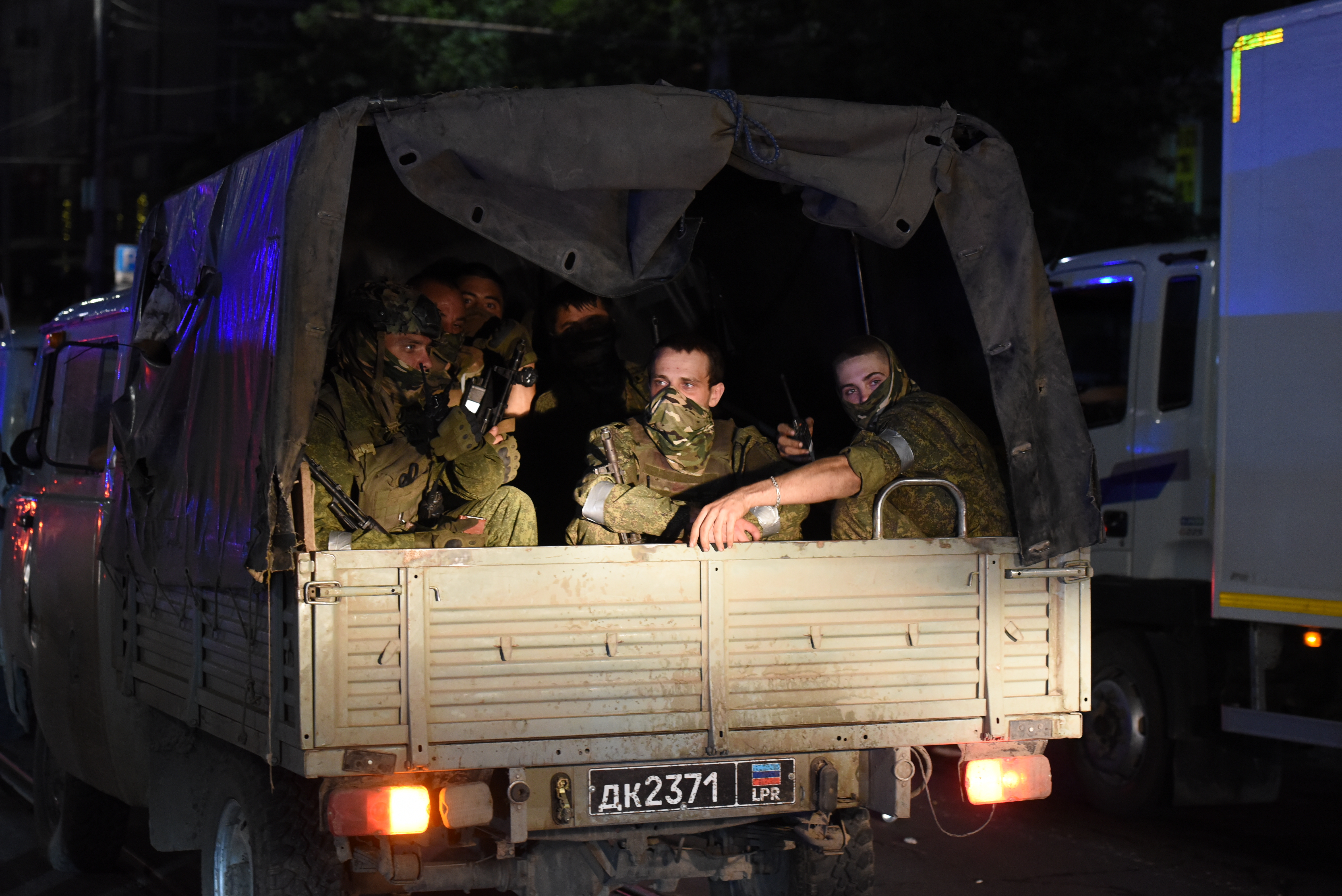International politics
Unravelling Georgia's Political Fractures

Members of the Wagner Group
© picture alliance / AA | StringerThe mutiny of Russian mercenary group “Wagner” against Kremlin shook the imagination of many observers. Even though it was obvious that something was “cooking” between Prigozhin and the army officials, the scale, timing, the speed, and – eventually – the end of the mutiny was a surprise to many Russia-watchers.
The significance of this event extended far beyond Russia, particularly in Georgia, where the state of Georgia-Russia relations and the existential threat posed by Russia made the mutiny a matter of great concern and curiosity, with unexpected unpacking of Georgia’s internal politics as well.
During the entire duration of the mutiny, from its onset to its conclusion, representatives of the ruling Georgian Dream party and openly pro-Russian figures in Georgia promptly withdrew into silence, adopting a covert approach and silently waiting for the winner. The expert community, along with the opposition, on the contrary, urged the convening of a National Security Council meeting and the temporary closure of the border with Russia – a basic security measure that was already implemented in Georgia during the turmoil in Turkey in 2016.
Need for stringent border control
In a brief tweet, the President of Georgia Salome Zourabichvili emphasized the need for stringent border control considering potential waves of migration, and soon held a press-briefing criticizing the government for their inaction and expressing dissatisfaction with the lack of information provided to the President’s Office regarding the intended measures to address the situation.
This reaction clearly demonstrated the Clash Royale between the President and the Prime-Minister, and not only the lack of coordination between the two bodies, but also unfortunate fragmentation of Georgia’s security architecture. The relationship between the President and the ruling party has been steadily declining due to escalating political tensions, even though Zourabichvili was originally elected with the support of Georgian Dream. This deterioration has been significantly accelerated by the Russian invasion of Ukraine and the contrasting approaches they have demonstrated, with the President choosing to fully support Ukraine and the Prime Minister either staying silent, or issuing conflicting statements in line with the Kremlin’s propaganda. This tension isn't solely based on foreign policy positions: Zourabichvili's recent vetoes of laws initiated by the Georgian Dream, aimed at solidifying their absolute power over the country, have also contributed to their dissatisfaction. Additionally, her pardon of Nika Gvaramia, the most outspoken critic of the ruling party and founder of the opposition channel "Mtavari," has further fueled their discontent.
Huge challenge for the security architecture
This fragmentation and fragility became apparent through the constitutional reform executed by the Georgian Dream. They effectively removed the National Security Council from the President's purview simply because of their dissatisfaction with the previous president, Giorgi Margvelashvili, leaving only a rebranded shell of a once influential institution.
However, Prigozhin's rebellion posed yet another formidable challenge for the security architecture under the current Georgian Prime-Minister Gharibashvili's leadership. Yet again, party politics and Georgian Dream's stance towards the President overshadowed the importance of an institutional approach. Similar pattern of behavior persisted after the mutiny. The statements from Georgian Dream officials were a curious blend of political spin and fabricated narratives, aiming to accuse the opposition of "opening a second front". This has been a long-lasting anti-western narrative of the ruling party, implying the existence of the “global war party” in the West pushing Georgia into the war with Russia. At the same time, the ruling party was portraying Prigozhin as a butcher of Ukrainians. The latter spin, although being true per se, was used to falsely accuse opposition of supporting Prigozhin, and in propaganda twist, supporting the murder of Ukrainians.
This two-fold narrative served two distinct purposes. Firstly, this strategy was employed to obscure the Georgian Dream's own misconduct concerning Ukraine since the inception of the war. It was a deceptive tactic to unjustly shift the blame onto the opposition for an issue that the Georgian Dream itself should answer for. Secondly, it aimed to paint the Georgian Dream as a responsible actor, in stark contrast to a perceived hot-headed and impulsive opposition. This narrative will definitely be appealing to the core Georgian Dream voter base.
Dissemination of two paradoxical narratives
Yet, the openly pro-Russian factions have adopted a slightly distinct approach, one that mirrors the strategies of the Kremlin itself. Despite clear fragility of Russia's current leadership exposed by the mutiny, these groups continue to disseminate two paradoxical narratives: first, a conspiracy that the whole mutiny didn’t exist and that it was a plan by the Kremlin; and second, that Putin’s regime demonstrated its strength by crushing the mutiny.
The mutiny highlighted not only the geopolitical uncertainties weakness of Russia, but also the internal political dynamics and fractures within Georgia. Reactions to Prigozhin’s mutiny revealed the deep-seated fragmentation of Georgia's security architecture, brought into the light the contrasting approaches of the Georgian Dream party on one hand, and the expert community, opposition and even the Georgian President on another. In the face of the crisis, the ruling party adopted a dual narrative strategy. They put the opposition on the defensive, continuing their strategy of redirecting blame for faulty foreign policy decisions regarding Ukraine onto the opposition. Concurrently, they attempted to portray themselves as responsible actors, in an attempt to spin the narrative in their favor.
As the aftermath continues to unfold, the Georgian political spectrum – and the ruling party first and foremost - must move past fragmented responses and towards coordinated efforts to ensure national security and stability. The mutiny in Russia highlighted the peril of "shadow rule" - the undue influence of certain individuals over institutional structures, the necessity of maintaining robust institutional structures and the preservation of democratic values amid internal political discord.
Moreover, these situations bring to light the inherent danger of geopolitical grey zones, where lack of clear Western interest can foster instability and conflict, undermining regional and global security.
